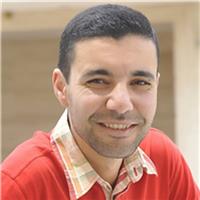نبه بعض الفاعلين في الحقلين اللغوي والإعلامي في أكثر من مناسبة، إلى أن لغة الإعلام ومسألة التعدد اللغوي الذي يطبع اللسان الإعلامي الوطني تطالهما العديد من الاختلالات، خصوصا في القطاع السمعي والبصري العمومي.
قطاع يفترض فيه أن يحمي ويقوي اللغتين الرسميتين (العربية والأمازيغية)، واللسان الصحراوي الحساني، ثم التعبيرات الثقافية المغربية، التي تشكل مقومات أساسية للهوية والحضارة المغربية.
لذلك تم مؤخرا في مدينة الرباط تأسيس "مرصد وطني للغات الإعلام"، بمقتضى اتفاقية شراكة بين وزارة الاتصال ومعهد الدراسات والأبحاث للتعريب وجامعة محمد الخامس بالرباط، بهدف المساهمة في حماية وتنمية وتطوير لغات الهوية الوطنية ولغات الانفتاح والنهوض بها، انسجاما مع أحكام الدستور.
كما سيضطلع المرصد الوطني للغات الإعلام، بمهام الرصد والتفكير في إشكالية اللغة في الإعلام المغربي بطريقة علمية أكاديمية.
حالة فوضى في لغات الإعلام الوطني
يعاني المشهد الإعلامي المغربي حالة من "الفوضى اللغوية"، باعتراف الوزير المسؤول على القطاع نفسه، مما ينجم عنه عدم تثمين مقومات اللغات الوطنية، بما فيها العربية والأمازيغية بروافدها، والحسانية بخصوصياتها، ثم الدارجة.
في هذا الإطار يرى فؤاد بوعلي، عضو المرصد الوطني للغات الإعلام، بأن الوضعية الفوضوية التي تعرفها اللغة في الإعلام، "تأتي من كون أي لغة من اللغات سواء الوطنية أو الرسمية أو حتى الأجنبية، لا تستعمل في إطارها السليم والحقيقي. فاللغة العربية أو اللغة الأمازيغية أو اللغات الأجنبية أو حتى اللهجات المختلفة، تستعمل في الإعلام بشكل مغلوط يجعل منها أجساما غير قابلة للتداول اليومي".
يوضح بوعلي، في تصريحه لـ"مجلة الصحافة"، أنه "في حالة اللغة العربية مثلا، فهي لغة فاقدة لكل وجود داخل الإعلام الوطني، باستثناء النشرات الإخبارية والخطب الدينية. وكأنها رسالة من القائمين على وسائل الإعلام بأن اللغة العربية غير قابلة للتواصل والتداول والتفاعل اليومي، بل تبقى لغة خاصة بمجالات الأدب والوجدان والتدين فقط".
مقابل ذلك، "هناك تسييد للغة الفرنسية، وتشجيع على لسان دارج هجين يلتقط أسوء ما في اللهجة المغربية ببهارات فرنسية؛ وهي دارجة بعيدة عن لسان المغاربة الراقي الذي أبدعوا به في شتى المجالات"، يضيف عضو المرصد الوطني للغات الإعلام.
نفس الخلاصات تستنج في الحديث عن عنصر آخر من الثقافة المغربية، ويتعلق بحضور الثقافة الحسانية الصحراوية ولهجتها إعلاميا في المغرب، مع أن الفصل الخامس من الدستور المغربي، يؤكد على أنها مكون رئيسي من مكونات الثقافة المغربية ويجب صيانتها.
يؤكد رحال بوبريك، مدير مركز الدراسات الصحراوية بجامعة محمد الخامس بالرباط، بأن "الثقافة واللسان الحسانيين، غائبين تماما عن الإعلام الوطني الحكومي والخاص معا، باستثناء قناة العيون (جنوب) التي تبث برامجها بالحسانية".
كما يشدد رحال بوبريك، في حديثه لـ"مجلة الصحافة"، على أن "كل ما يقدم في القطاع السمعي البصري، لا يفي بالمطلوب ويعاني من اختلالات عدة على مستوى ضبط الثقافة واللسان الحسانيين، خصوصا حينما تعتمد وسائل الإعلام عناصر لا مهنية، ولا تتقن اللسان الحساني الصحراوي".
في أفق تجويد اللغة وتعزيز تنوعها
شيء منطقي أن يكون للغة الإعلام تأثير مباشر على جودة البرامج والمنتج الإعلامي المقدم للجمهور المغربي، وهو ما سينعكس سلبا أو إيجابا على المتلقي في آخر المطاف.
يدعو عبد الحكيم المرابط، الباحث في السمعي البصري، في تصريح لـ"مجلة الصحافة"، "المرصد الوطني للغات الإعلام، إلى الانتباه جيدا لهذا الأمر والعمل على تطوير وتجويد اللغة المستعملة إعلاميا، زيادة على ترسيخ وتعزيز التنوع اللغوي في الإعلام من خلال اقتراح آليات وقواعد منهجية عملية تساعد على ذلك، ورفع التقارير إلى المؤسسات الدستورية والإعلامية".
رأي يشاطره فؤاد بوعلي، عضو المرصد الوطني للغات الإعلام، الذي يعتبر أن "وظيفة المؤسسات كالمرصد أو أكاديمية اللغة العربية إن قدّر لها الوجود، هي الرقي بلغة الإعلام، بضبط عملية التواصل اللغوي داخل المشهد السمعي البصري. ما يعني أن الرهان الأساسي لمؤسسة كالمرصد هو السلامة اللغوية".
لكن يبدو أن ترجمة أهداف المرصد، ستتأتى أساسا -بحسب عبد الحكيم المرابط- من خلال "التنسيق مع كل من المعهد الملكي للثقافة الأمازيغية، والمجلس الوطني للغات والثقافة المغربية بعد إحداثه، ثم الهيئة العليا للاتصال السمعي البصري خصوصا، إذ أن مشروع القانون المتعلق بإعادة تنظيم الهيئة، ينص في البند السادس من المادة الثالثة على أن الهيئة العليا تعمل على المساهمة في حماية اللغتين الرسميتين للملكة والثقافة والحضارة المغربيتين في قطاع الاتصال السمعي البصري".
"إن إدراج الجانب اللغوي والثقافي في اختصاصات الهيأة العليا للسمعي البصري، يسمح للمرصد الوطني للغات الإعلام بأن يكون مرجعا يمكن للهيأة أن تعتمده، للحفاظ على هوية الوطن اللغوية والثقافية"، يقول فؤاد بوعلي، عضو المرصد الوطني للغات الإعلام.
لكن رحال بوبريك، مدير مركز الدراسات الصحراوية، يشدد على أن "خدمة اللسان الصحراوي أو أي مكون من الهوية المغربية والحفاظ عليه وتطويره في الإعلام العمومي والخاص معا، يتطلب أكثر إرادة سياسية حقيقية".








































